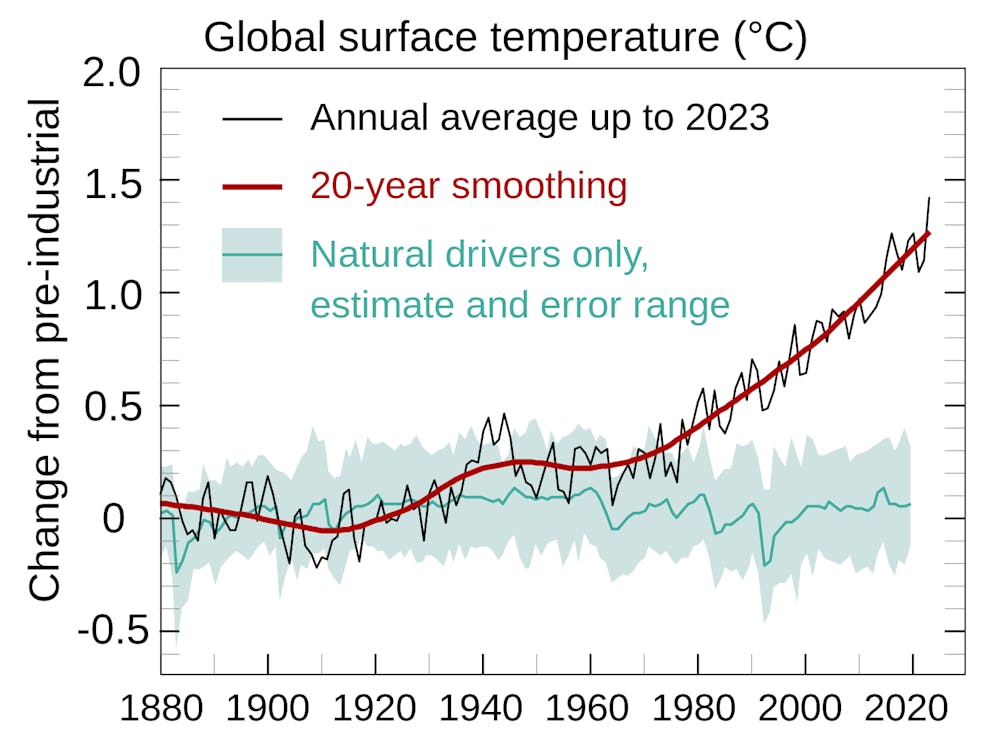By Aneri Upadhyay
Staff Writer
A new climate report by the United Nations revealed that 2023 broke new records for levels of greenhouse gas emissions, temperatures, ocean acidification, ocean heat and ice cover.
U.N. Secretary-General António Guterres released a video message in which he stated that “Sirens are blaring across all major indicators... Some records aren’t just chart-topping, they’re chart-busting. And changes are speeding up.”
2023 has been named the warmest recorded year ever. According to the U.N., surface temperatures reached record breaking levels with it being 1.45°C hotter than the baseline.
Along with air temperatures, the ocean is also warming up. In 2023, almost one third of the ocean suffered a marine heatwave everyday. There was also the largest loss of ice since 1950 in glaciers. This was focused in western North America and Europe.
These changes in the world have dire consequences for the people living in it. According to the report, climate changes such as those mentioned above have played a serious role in displacement, food shortages, biodiversity loss and health issues.
When presenting the report in Switzerland, World Meteorological Organization Secretary-General Celeste Saulo stated that the climate crisis is one of the biggest problems in the current world. It plays a role with the inequality crisis, she said.
According to the Food and Agriculture Organization of the United Nations, agrifood systems need to change as well.
“The latest WMO report is a chilling reminder of runaway climate change and its impacts, including on food insecurity,” said Kaveh Zahedi, director of the FAO Office of Climate Change, Biodiversity and Environment. “Reversing this trend will require major investments in solutions that can help countries and communities build resilience to a changing climate, reduce record-breaking emissions and protect lives and livelihoods all at once. Nowhere are these solutions more abundant and impactful than in agriculture and food systems”
These climate changes have resulted in billions of dollars of economic loss for the nations impacted by them. According to the FAO, southern Africa suffered from intense flooding due to Cyclone Freddy. South Sudan also experienced intense flooding. Indonesia, on the other hand, suffered through a drought that killed crops and lessened the production of rice.
According to AP News, the WMO stated that 2024 has the potential to be another intensely hot year.
The U.N. is trying to reduce Earth temperatures through the use of wind, sun and water to generate power and energy. Malte Meinshausen, a professor of climate science at the University of Melbourne in Australia, commented on this plan, according to AP news.
“What is more urgent than ever is to grasp the economic opportunities that arise due to the low-cost renewables at our disposal, to decarbonize the electricity sector, and electrify other sectors,” Meinshausen said.







